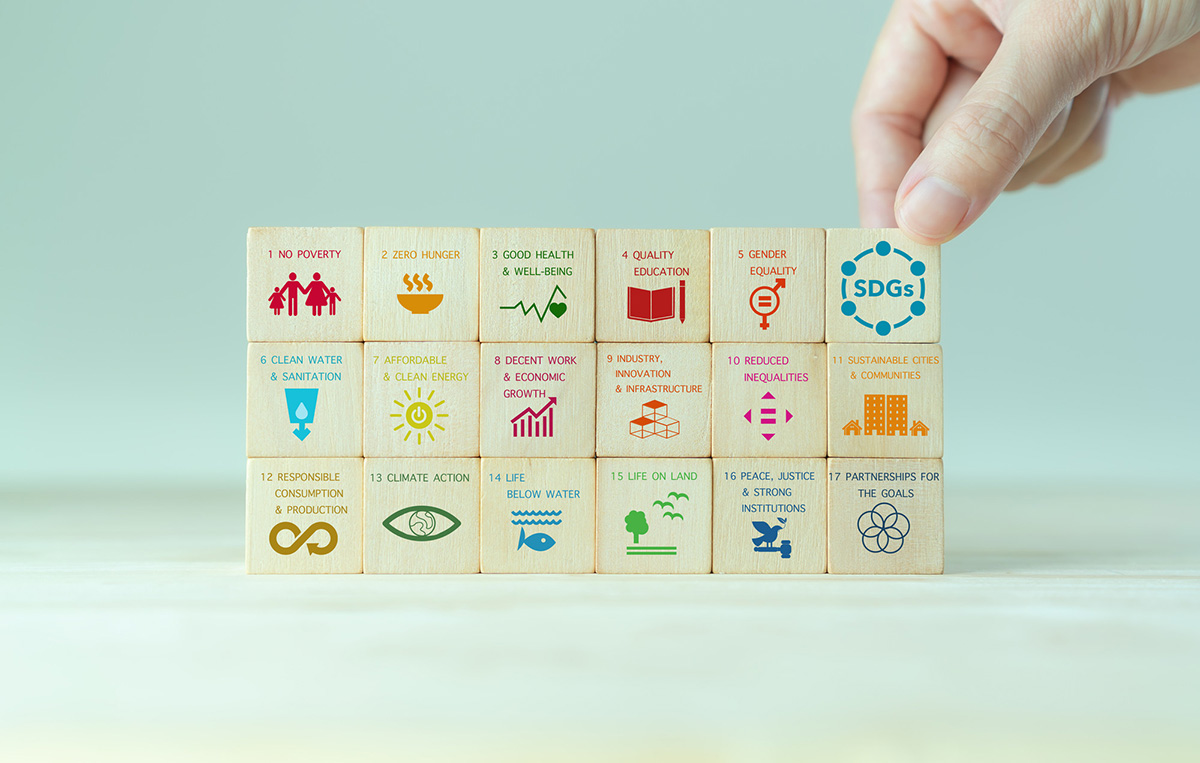UAE
With the United Arab Emirates to host the United Nations Climate Change Conference (COP28) this November and December, UAE higher education institutions have intensified their focus on climate change and sustainability, greening campus infrastructure, developing courses and engaging with the private sector.
Andrew Mackenzie, a senior marketing and innovation lecturer at Middlesex University Dubai, told University World News that universities across the UAE and neighbouring Gulf countries have witnessed a “flurry of activity” related to COP28, to be staged from 30 November to 12 December 2023 at Expo City in Dubai.
“In the level of engagement in working towards sustainability, the UAE is definitely a leader in this part of the world, especially [the emirates of] Dubai and Abu Dhabi,” Mackenzie said.
The UAE government is supporting a raft of programmes related to addressing climate change, with educational initiatives a core component. The COP28 presidency is headed by Dr Sultan Ahmed Al Jaber, the UAE minister of industry and advanced technology.
On the sidelines of the United Nations General Assembly in New York in September, the COP28 presidency and Dubai Cares, a civil society organisation focused on youth and which is formally associated with the UN, hosted a high-level session and put forward a programme for climate education titled “Rewiring Education for People and Planet: The road to COP28”.
This discussed plans to feature education at COP28, with a RewirEd Summit 2023 to take place on 8 December – Education Day – as part of a “Youth, Children, Education and Skills” theme of COP28.
The conference presidency has also backed the Universities Climate Network, which comprises 31 UAE-based universities and higher education institutions that are working “to drive engagement among youth and academia in the lead up to COP28”, according to a note.
Middlesex University Dubai
Middlesex University Dubai is part of the network, and has held sustainability events this year, from a Love the Planet day, focusing on fashion sustainability and recycling, to an event on food security and waste in the lead up to the Muslim holy month of Ramadan.
The university is to co-host a Climate Law and Governance Day together with the University of Cambridge at COP28, on 5 December, bringing together COP delegates, researchers, students, legal practitioners and experts.
It also participated at the UN Conference on Trade and Development (UNCTAD) World Investment Forum on sustainable finance, which was held last week at the Abu Dhabi National Exhibition Centre, from 16 to 20 October.
“The idea of this COP is on solutions, to analyse problems and engage students, whether at schools, high schools or at the university level, and for research and development in industry. It is about more cooperation between academia and government, and the mingling of industry and academia to become stronger,” said Mackenzie.
The university has a three-pronged approach to climate change and environmental, social and governance (ESG) initiatives – ESG are the three main areas that companies are expected to report on, and ESG frameworks are used to screen companies based on corporate policies, and to encourage companies to act responsibly.
The first prong involves research by staff and students into sustainability and trends. Mackenzie pointed to his research, which involves interviewing chief sustainability officers in various industries in the UAE on trends and barriers to ESG.
A second pillar involves employment policies. At the university, women now account for more than half of management positions.
And a third pillar involves engagement with industry, with the university working on ESG with the likes of aviation giant Airbus, which has links with the UAE armed forces, and logistics company DHL, which operates widely in the country – a key global trade hub.
Sustainability in curricula, classes and activities
To transition to a more sustainable economy, UAE universities have incorporated sustainability within course curricula. Mackenzie said such programmes can make students more employable, but he noted that the business community does not want graduates that just have sustainability credentials.
“Students should also be problem solvers. There has been a move onwards from sustainability being at the core of developing a new course, as sustainability is now at all levels, and from engineering to business studies. It has been a big change as far as universities go,” he said.
Other UAE universities, such as New York University Abu Dhabi, offer 28 classes that are sustainability driven, while public institution Zayed University, which has campuses in Abu Dhabi and Dubai, announced in October that the number of students enrolled in its sustainability programme had nearly quadrupled, from 52 in 2022 to 207 this year.
The university also launched a series of activities, such as a new sustainability prize, under the theme #RoadtoCOP28
The Sorbonne University Abu Dhabi this year launched the Go Green 2023 initiative, which focuses on key themes including carbon footprint reduction, sustainable development activities and collaborative environmental research.
A university communiqué said: “Go Green 2023 aims to contribute to raising awareness among the university community on climate change topics as well as to develop students’ capacities and enhancing their participation in developing initiatives that address climate change challenges, environmental concerns and contribute in moving towards a more sustainable future.”
UAE universities and the SDGs
UAE universities have also been adopters of the UN Sustainable Development Goals (SDGs), which were initiated in 2015.
The state-backed United Arab Emirates University, for example, rose up the Times Higher Education Impact Rankings 2023 for 10 of the 17 SDGs, securing a global ranking for SDG 6 on clean water and sanitation, SDG 7 on affordable and clean energy and SDG 10 on reduced inequalities. The university has published some 4,400 research papers aligned with the SDGs between 2017 and 2023.
Meanwhile, UAE universities have invested in greening campuses, from installing solar panels and energy efficient lightbulbs, to using technologies to reduce water usage, and raising environmental awareness among the student body.
Martin Keulertz, assistant professor in the food security programme at the American University of Beirut, in Lebanon, commented: “UAE universities are not global leaders in the field, but they are pursuing hands-on strategies to reduce universities’ climate footprint.”
“The UAE is one of the most challenged countries in the world regarding climate change and temperature rises, so action is urgently needed, and universities are prime organisations for change. Crucially, in the long-term, change towards more sustainability courses is crucial to prepare the next generation for working in green jobs,” Keulertz told University World News.
Such reforms help underpin the choice of the UAE as host of COP28, which has come under criticism, given the country’s economic reliance on hydrocarbons. The UAE is the third largest oil producer among the Organization of Petroleum Exporting Countries and the seventh-largest total liquid fuels producer in the world, according to US Energy Information Administration figures.
The January appointment of Sultan Al Jaber as president of COP28 has also been criticised by environmentalists, given that he is also managing director of the Abu Dhabi National Oil Company. That said, Al Jaber is also chair of Masdar, a major UAE-based renewable energy company.
Mackenzie acknowledged the criticism from certain quarters. “I understand some of the criticism, but if we don’t drag people along with us, we are never going to get there, to meet climate change goals. We are lucky in certain ways that the government has set ambitious climate change targets and has a history of setting targets and achieving them,” he said.
In 2021, the UAE announced plans to invest US$163 billion to meet a country-wide net-zero emissions target by 2050.
Credit:Source link



